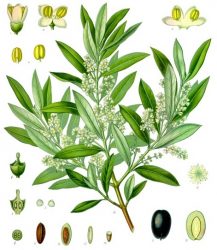I shopped at Costco last week. As I waited in line for my sanitized cart I read the whiteboard sign listing what products are out of stock, which are newly restocked, and, in bold letters, the new store policy that customers must wear masks to enter the store. (On a side note: Apparently some people feel wearing a mask violates their “freedom.” The freedom to do whatever you want, regardless of putting others at risk? Let’s all just wear the masks. Please.)
Walking through the warehouse these days feels a bit like a scene out of Red Dawn, or Handmaid’s Tale. No one speaks. Heads down, stand aside. Get your items and move along. No chitchat, no samples. But they’ve got avocados! Blessed be the fruit. Chunky peanut butter, gallon-size? Praise be. In the frozen foods section I heard a woman squeal to no one in particular, “Wow!! This is a great deal!” and grab a pack of something from the shelf. I waited politely, then sidled my cart up to the window. Eight Beyond Meat plant-based burgers for $15? Sold.
President Trump recently ordered meat processing plants to stay open despite and amidst rising cases of Covid-19 at factories in Colorado, Iowa, Nebraska, Indiana, and Washington state – and these are just the outbreaks that have been reported. Other states refuse to share information or haphazardly allow workers to be tested. Overall meat production is down and prices are rising; some fast food restaurants are even out of burgers altogether. “Where’s the beef?” indeed.
Even before the current crisis the popularity of plant-based burgers has been on the rise. More and more Americans are trying out Impossible Whoppers and Beyond Meat burgers – exciting options for those transitioning away from meat-heavy diets. Further, in the midst of a pandemic that most likely originated in a wet animal market, people are increasingly “veg-curious” and reaching for plant-based alternatives.
You’ll hear criticism, however, from those still squarely on the meat-train: “Plant-based burgers are so processed! Real meat is natural.” Okay. First of all, some stats about modern meat: 70% of grain produced in the U.S. (mostly GMO corn and soy) goes to feed livestock, and about 60% of the world’s agricultural land is used to produce meat for human consumption –yet this factory farmed meat accounts for less than 2% of total calories consumed by people. At least thirty pounds of genetically-modified corn and soy (in addition to growth hormones and antibiotics) go into the making of a regular hamburger – the cost of which is kept ridiculously low by an extremely powerful meat industry. This is in addition to the massive environmental “hoofprint” left behind by modern factory farming in the form of water pollution, unsatisfactory waste treatment facilities, and encroachment into other species’ environments. (The continuing destruction of milkweed, for example, the main food for Monarch butterflies, has caused their populations to decline by 90% in recent years.) So no, unless you consider pesticides, artificial hormones, factory-made antibiotics, and slaughterhouses “natural,” that Big Mac is anything but.
What about grass-fed beef — isn’t this more natural? Yes, but even if we could transition from CAFOs (Concentrated Animal Feedlot Operations) to smaller and more varied, sustainable farms, there is not enough land available to meet current beef consumption in the US with grass-fed beef; cattle simply need too much land for grazing.
By comparison, the new plant-based burgers use less than 8 ounces of (GM) soy per burger — far less farm land than what is required to create a beef patty and minus the hormones, antibiotics, parasites, and bacteria always threatening to launch the next meat-borne illness. Plant-based burgers also have less saturated fat and the same amount of protein as a hamburger. Is it a natural food? Nope. And that is fine with me because even plant-based burgers should be an occasional treat. I would no more buy my kids Impossible Whoppers every day than I would order them chicken nuggets or fish fillet sandwiches because they are not health foods. I believe meat, in whatever form, should not be consumed at every meal, and that its price should reflect the process, labor, and sacrifices required to bring that food to your plate.
The new plant-based burgers are an occasional treat for vegetarians who enjoy the taste of meat and a great alternative for those trying to lessen their meat consumption or who eat fast food on a regular basis. Many fast food places are offering their own takes on either Impossible Burgers or Beyond Meat patties – check them out and let me know which you like best!


